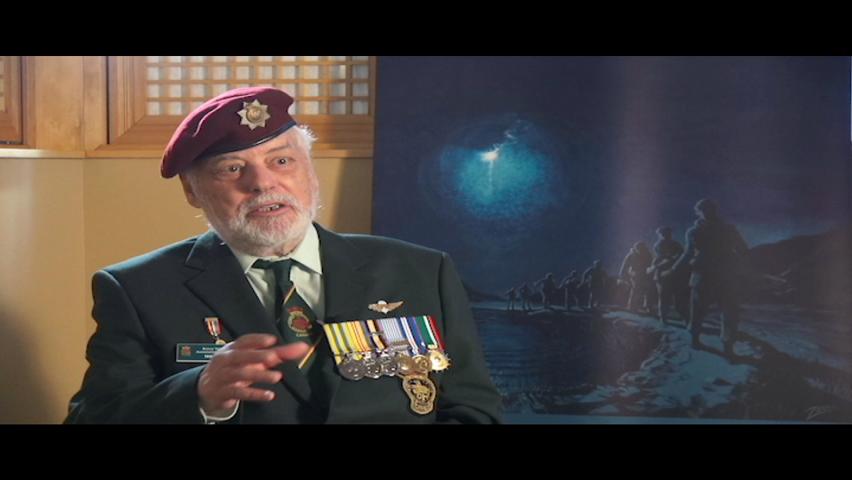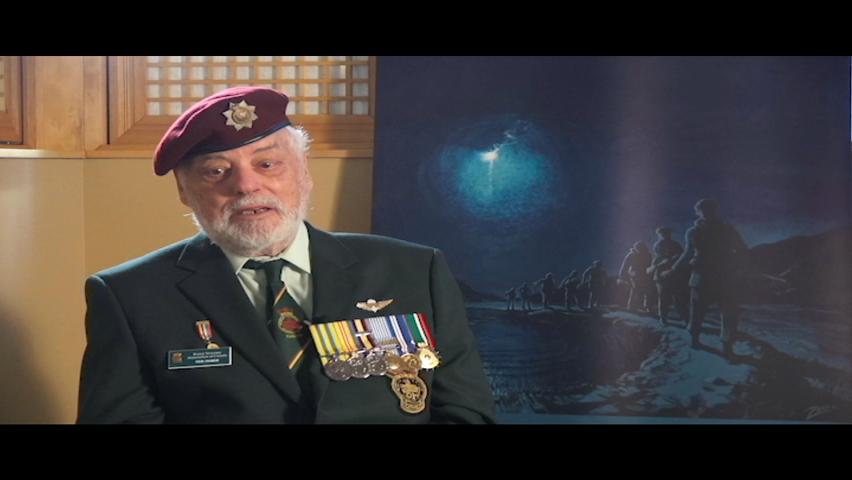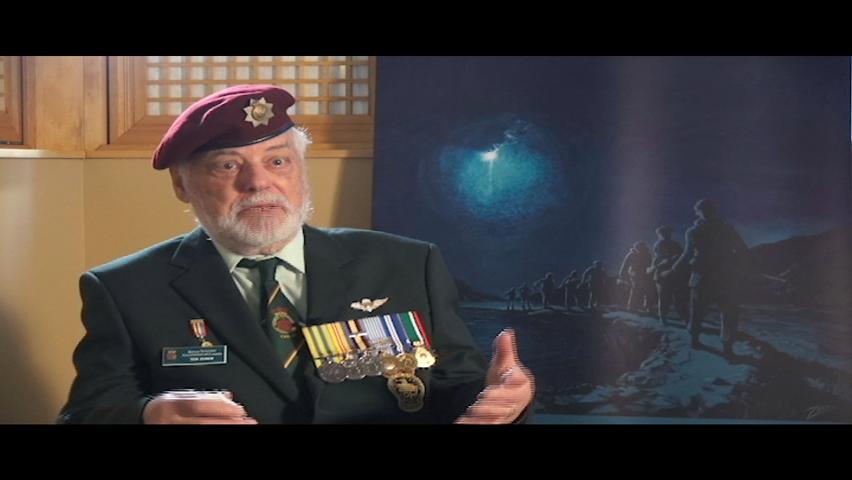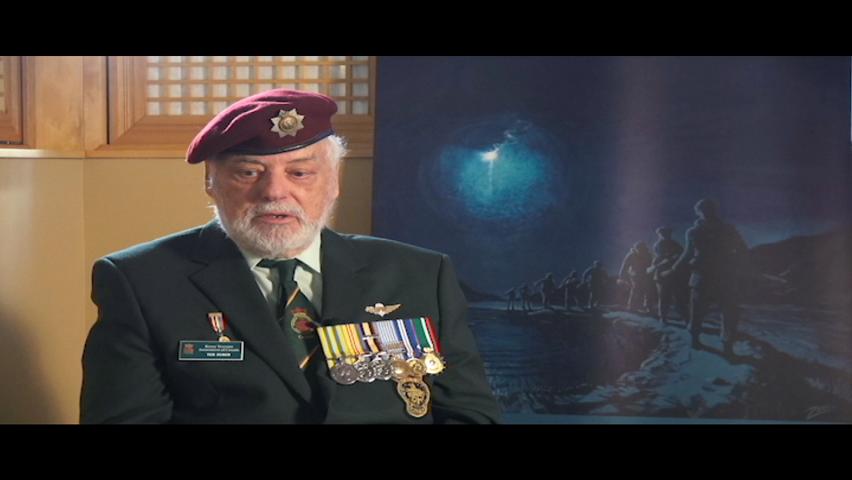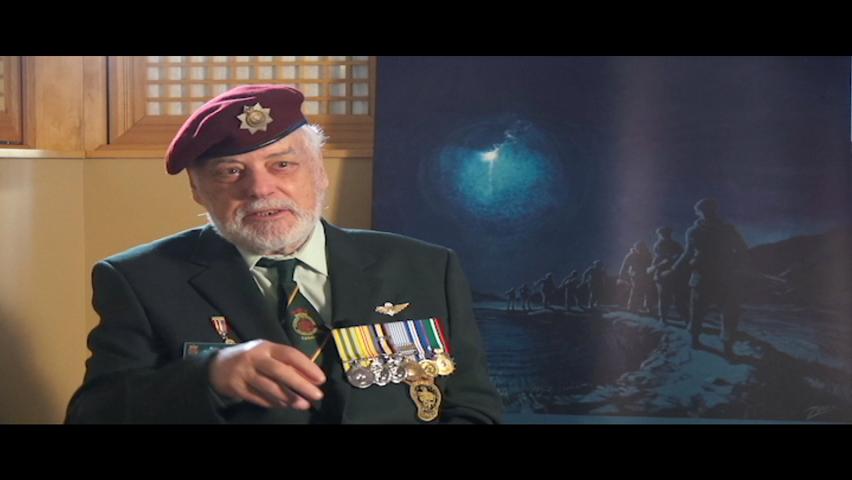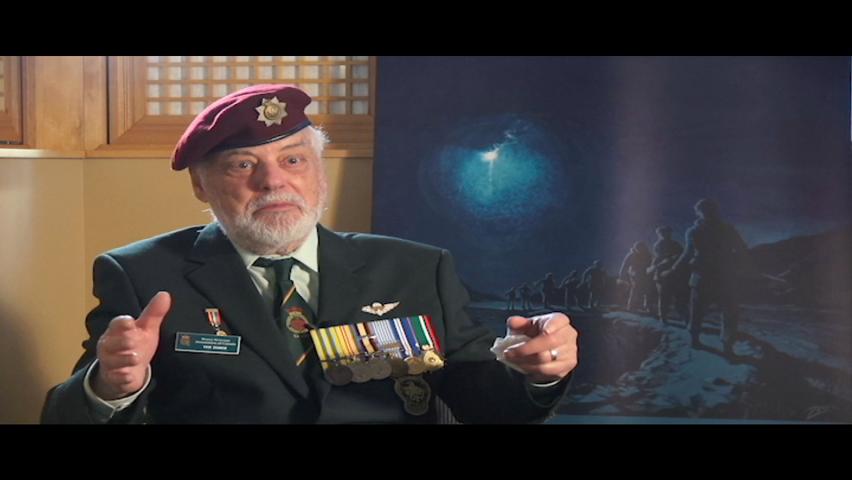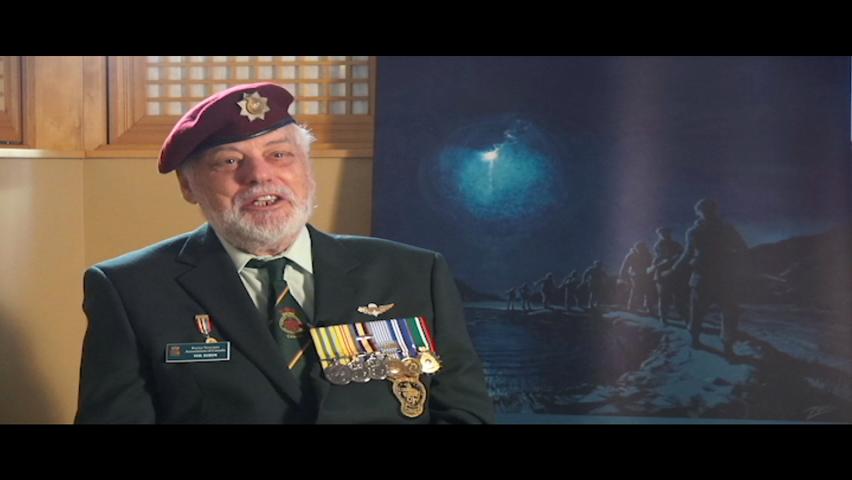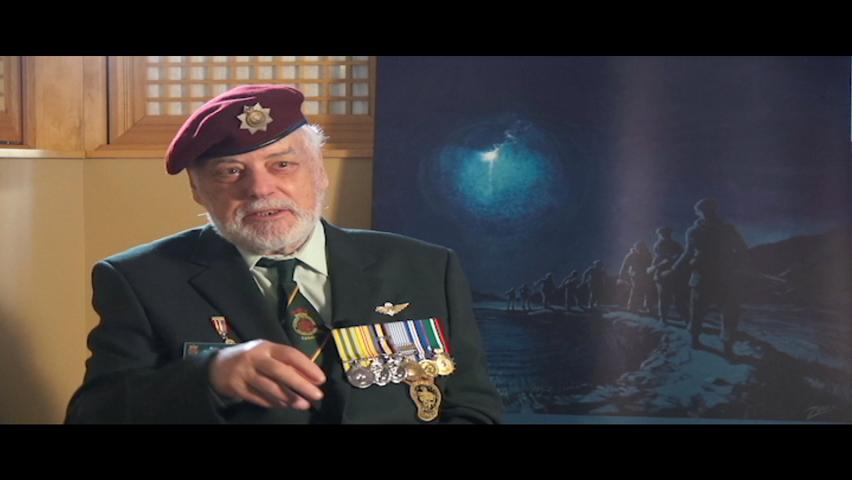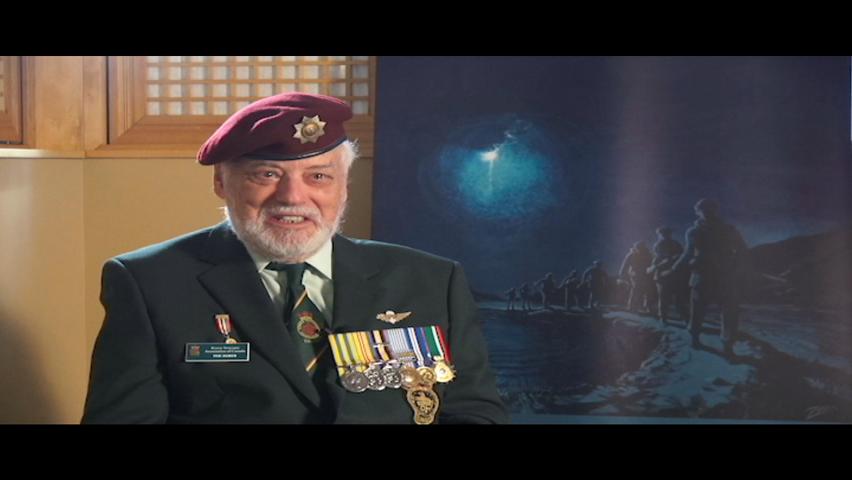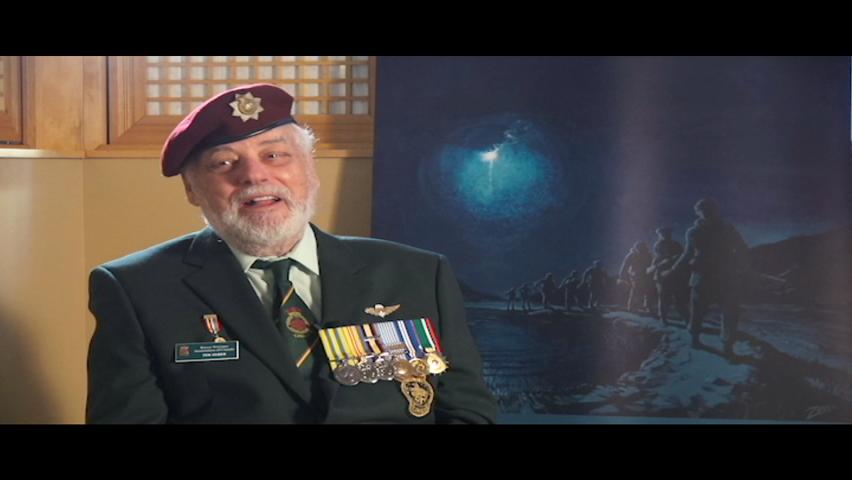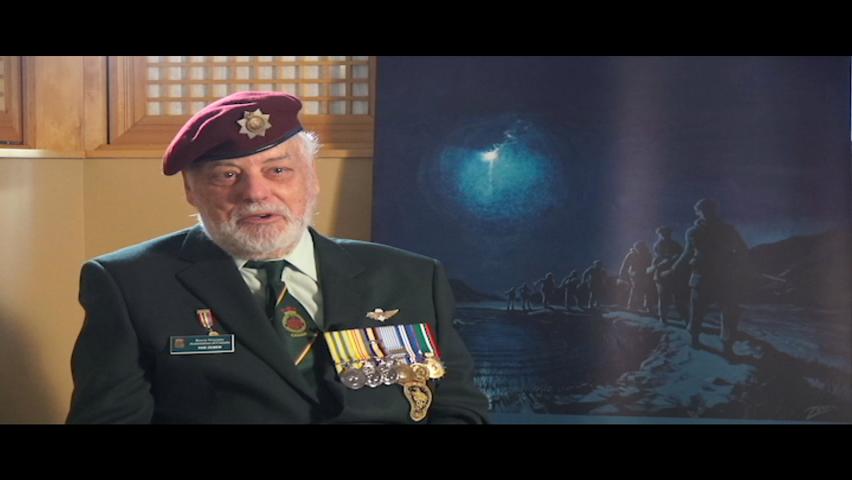I grew up mostly during the Second World War
and radio was the big thing. And I can remember
the family, it’s like an old movie I suppose.
And I can remember the family were all sitting
around the radio in the front room with dim lights.
And the program would be perfect because
we could only listen to it and conjure
up in our mind and, of course,
each one of us conjured the image
that suited us. So the programs
were perfect. And the one program
that was so outstanding, I remember
I can still feel a degree of emotion.
I think it was on Friday nights
but that’s not important.
It was a Second World War story of
a Canadian Lancaster Bomber crew and
the heading of the program was,
“L for Lanky, Come in L for Lanky!”
And, of course, the sounds effects
of the engines, the engines of the
Lancaster Bomber and the fellows
speaking on the intercoms with each other,
it was magnificent.
I didn’t like school very much.
I don’t think I was a very good student.
Mathematics was my weakest. And, of course,
as an artist if I get creative with the numbers,
the answer is wrong, so what did I have,
you know? I learned to read very quickly.
The war was over.
We grew up during the war.
By that I was thirteen years old the very
day the war ended, the 7th of May and
what a birthday gift.
Privately inside ourselves, by that I mean
boys my age, we were sorry that it
ended so soon. Not because we wanted
people to die anymore. But we didn’t get a
chance to show that we were men also.
And, of course, you can imagine the propaganda
during the Second World War. If you weren’t in
uniform you didn’t exist almost, you know.
When the Korean War came out suddenly we
had a chance to show that we too could be a man,
propaganda. And I had to join the paratroopers.
I was 136 pounds and they apologized.
It took 3 or 4 days to enlist right downtown,
Sherbrooke Street in Montreal and they called me,
the public selection officer or somebody
called me in and he said,
“I’m sorry Mr. Zuber but we cannot
allow you to goi into the paratroopers because
you don’t weigh enough.” I guess the
parachute wouldn’t function properly sort of thing.
And I looked at him and said,
“Surely to God they are not going to put
me out of an airplane in the first week,
they’re gonna have me there for a while,
could they not put a few pounds on me?”
And he looked at me and he thought that
was brilliant and he said,
“That’s good!” And they let me in.
I must say I was reflecting the psychology
of growing up in that war atmosphere.
A little footnote if I may interrupt myself.
On the troop ship crossing the Pacific to
go to Korea, we went first to Japan.
And we were coming into Japan and
I was one of the few people that was up on
deck about 5 o’clock that morning on this
old liberty boat troop ship, it was crowded
but early in the morning you would get a
bit of space up on the deck and there was
only two or three of us I think up there.
And as we approached the Japanese Islands
it was misty. Not foggy but misty and a
little island appeared, nobody on it,
a couple of maybe trees.
And as we were getting closer we are
heading for the Yokohama Harbour.
I will never forget this.
I suddenly was overwhelmed with a terror and
intellectually I knew what was happening to me
so I was like two people at the same time.
I was marvelling at how I was reacting
but the reaction was terrifying.
All those bloody posters depicting the Japanese
as buck tooth, big glass villains because
that’s how they were depicted during the
propaganda of the Second World War
I was going into their home base.
I was honestly terrified.
It must have lasted for, I don’t know,
for five or ten minutes.
My intellect finally woke me up and got me
out of it. But it was a terrifying,
terrible experience as we are coming into
that spooky early morning fog of the
mist of the Japanese Islands.



